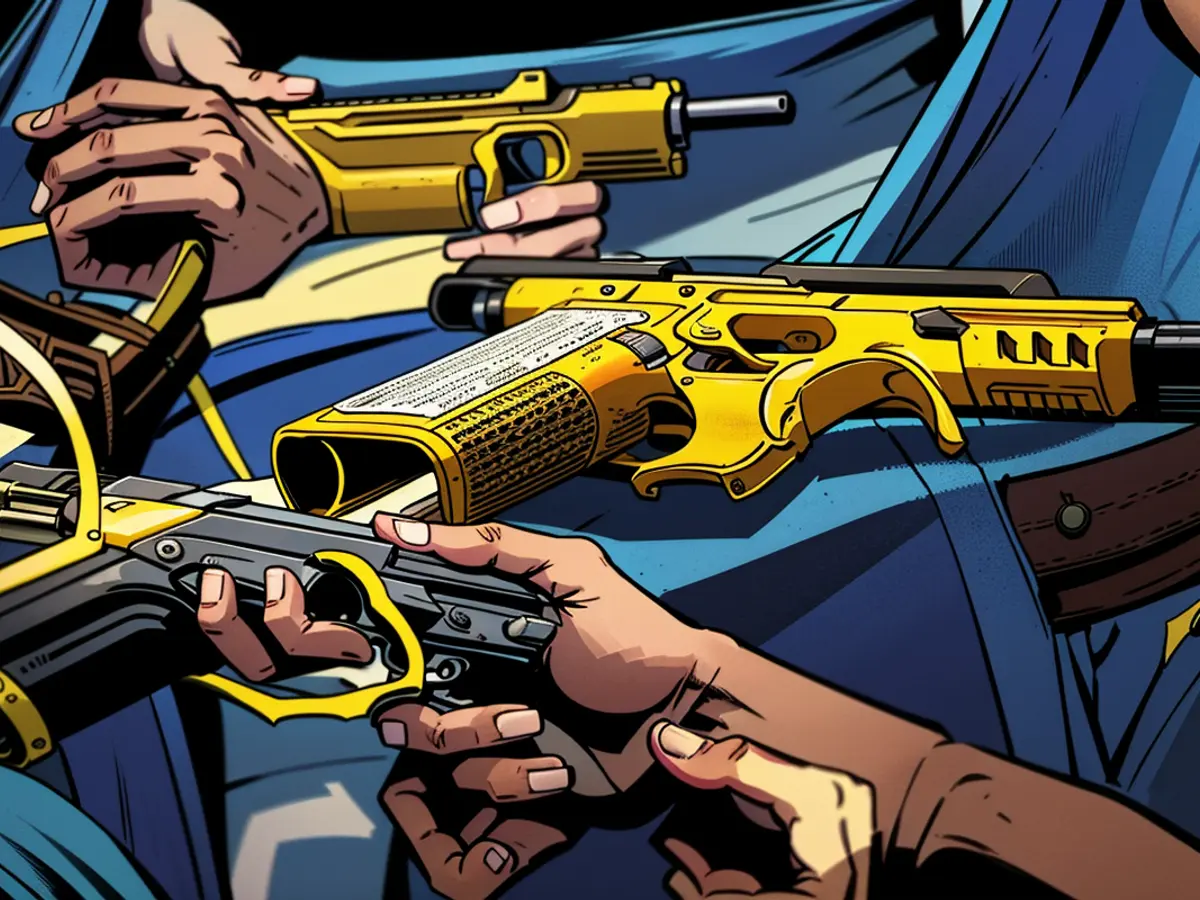The Supreme Court might endorse Biden's regulations on untraceable firearm components, often referred to as 'ghost gun' kits.
In one of the year's hotly debated cases, the Supreme Court is set to determine if the Bureau of Alcohol, Tobacco, Firearms, and Explosives exceeded its authority with a 2022 rule. This regulation demands that ghost gun kit manufacturers incorporate serial numbers and perform background checks on buyers.
Several conservative justices, including the liberals, displayed skepticism towards the contention that these kits cater to traditional gunsmithing enthusiasts. Chief Justice John Roberts, in particular, challenged the notion that assembling a gun kit is comparable to restoring a classic car.
"Drilling a couple of holes, I'd assume, doesn't give the same satisfaction as working on your car on weekends," Roberts commented to the lawyer representing the kit manufacturers. "From what I understand, it's not overly complicated for someone to do this."
Although not an issue directly linked to the Second Amendment, the lawsuit resurfaced gun-related matters before the Supreme Court at a time when its 6-3 conservative majority has moved towards more conservative stances. In June, the conservative justices ruled to annul a ban on bump stocks, accessories that transform semi-automatic rifles into rapid-fire weapons.
However, there were hints of discord within the court's conservative faction regarding this case.
Conservative Justice Samuel Alito posed questions indicating uncertainty over classifying an unassembled set of components as a firearm.
"Let's say we have a blank sheet and a pen – is that a grocery list?" Alito asked, presenting a pad in the courtroom. "So if I place eggs, chopped ham, pepper, and onions on a counter, is that a western omelet?"
The Solicitor General of the United States, Elizabeth Prelogar (representing the Biden administration), underscored that a pen and pad could be used for multiple purposes – not just a shopping list – and the ingredients could be utilized for various dishes. She added that ghost guns are marketed for gun construction and serve no other feasible purpose.
Justice Amy Coney Barrett, a crucial vote for this case, interjected to alter Alito's hypothetical.
"Would your response change if you ordered a kit from HelloFresh, and it came with all the ingredients for turkey chili?" she asked, referring to the meal kit service.
Ghost guns represent kits that users can buy online to build functional firearms at home. These weapons lack serial numbers, background checks, or traceability records. Critics argue that they attract people who are legally prohibited from purchasing firearms.
The Biden administration informed the court in briefings that police departments have experienced an "uptick in crimes involving ghost guns" in recent years. In 2017, police submitted about 1,600 ghost guns retrieved from crime scenes for tracing. Four years later, the number increased to over 19,000.
At the heart of the debate is a 1968 law that mandates background checks, keeps sales records, and requires serial numbers on firearms. The ATF concluded that this law applies to kits, which can be quickly transformed into functional firearms. The regulation doesn't ban the sale or possession of the kits but insists on serial numbers and background checks.
Advocacy groups and five kit manufacturing companies filed a lawsuit, arguing that the regulation exceeded the law's scope. They contended that the kits are not weapons but rather components.
A US district court in Texas dismissed the rule, and the 5th US Circuit Court of Appeals largely upheld that decision.
Furthermore, the Supreme Court intervened twice on its urgent docket, permitting the regulation to remain temporary while legal proceedings continued. Last year, five justices supported the Biden administration's emergency request.
Subsequently, a lower court temporarily obstructed the regulations towards two manufacturers. The Supreme Court rejected this decision, allowing the regulations to continue.
A decision in the case, Garland v. VanDerStok, is anticipated by the following summer.
CNN Chief Supreme Court Analyst Joan Biskupic contributed to this report.
The controversy over ghost gun kits has sparked intense discussions in the realm of politics, with politicians and legal experts debating the legality and implications of these unregulated firearm components.
Furthermore, the Supreme Court's decision on this matter could set a significant precedent in the ongoing debate about gun control policies.








